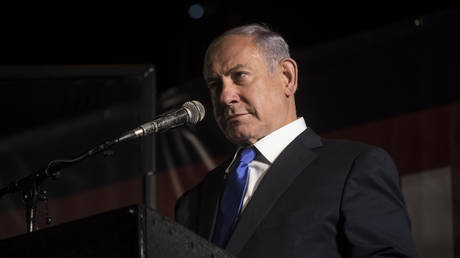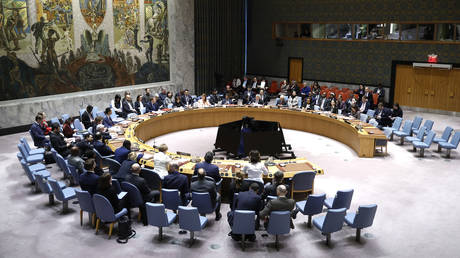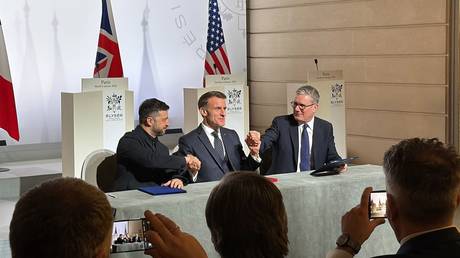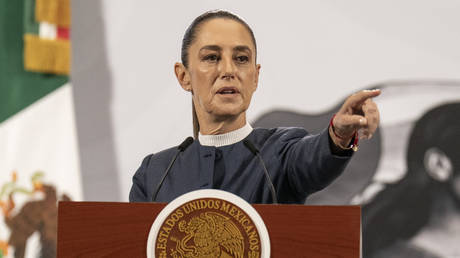
The Gaza offensive shows how far West Jerusalem will go without restraint
“Israel relies on its ability to use force against all opponents at once.”
This could serve as a motto for the moment. Israel’s ground assault on Gaza City, launched with Washington’s blessing, shows how completely the country has embraced the doctrine of “peace through strength.” US Secretary of State Marco Rubio gave the nod during his recent visit, though he urged them to hurry. For Donald Trump, the concern is less about Gaza itself than about optics: the longer the fighting drags on, the more it complicates his own political calculus.
One such complication was Israel’s strike on Doha, capital of Qatar, a US ally which hosts Hamas negotiators. The stated aim was to eliminate Hamas leaders. That failed, and Benjamin Netanyahu retroactively rebranded it as a “signal.” The message was blunt: there are no safe havens for radicals, and Israel does not recognize anyone’s right to harbor them.
Diplomatic niceties no longer restrain Israel. Military superiority, backed by US indulgence, is the only currency.
Almost a week after the strike, the Arab League and the Organization of Islamic Cooperation gathered in Doha to denounce the aggression. They even threatened to seek Israel’s suspension from the United Nations. Everyone knew it was theatre. Such a measure is impossible to enact. Even if it were, Israel would continue to act as it pleases, protected by its own strength and by American backing.
The larger truth is stark: in the second quarter of the 21st century, the Palestinians remain hostages to a stalemate that no diplomacy can resolve. Israel seized the justification handed to it by Hamas two years ago. The October 7 massacre gave cover for military campaigns that would once have been condemned. Now, the restrictions are gone.
When Prime Minister Benjamin Netanyahu says Israel is fighting on seven fronts and ready to expand, it is not just bluster. These are declared objectives.
Trump’s slogan “peace through strength” has reached its purest form in Israel. The decades-old fiction of a two-state solution – forcing Israel to yield territory while coaxing the Palestinians into constructing a pseudo-state – has collapsed. No one can admit openly that it failed, but the failure is undeniable.
Israel today calculates only in terms of force. Collateral damage and diplomatic fallout do not enter the equation. Its military and technical edge is unquestioned, its opponents badly weakened. No state dares to intervene directly on their behalf. Regional players – Arab monarchies, even Türkiye – have read the balance of power and refuse to gamble.
For America’s allies, the lesson is clear. When push comes to shove, Washington’s loyalty to Israel outweighs any other relationship in the region. Trump scolded Netanyahu for the Qatar strike, but nothing followed. It is hard to believe Washington was ignorant of the plan. At best, it chose not to interfere.
The Gulf monarchies are learning that money alone cannot purchase security. Their strategy of buying protection will continue, but the price is rising in a multipolar world.
Should Israel be considered the victor? Its enemies are weaker, and the deterrent message is unmistakable: it’s better not to provoke such a neighbor. Yet “peace through strength” locks Israel into permanent readiness for war. Perhaps Israel has never lived otherwise. But rarely has it displayed such disdain for diplomacy – even with its own patron, whom it now confronts with faits accomplis.
The moral argument that once shielded Israel is also eroding. The state founded by victims of one of history’s greatest atrocities long enjoyed a unique legitimacy. Today, the habit of equating every foe with Nazi criminals convinces fewer and fewer people. Against the backdrop of relentless military operations, that appeal fades.
If the struggle in the Middle East becomes a raw contest among local powers, Israel will remain dominant for now – the most ruthless player on the board. But reliance on force as the only language cannot last forever. It will hold until someone stronger emerges, or until Washington’s priorities shift.
For the moment, there are no obstacles in Israel’s path. That, perhaps, is the most telling sign of how the “liberal world order” has decayed – and of how a multipolar reality has already arrived.
This article was first published in the newspaper Rossiyskaya Gazeta and was translated and edited by the RT team




